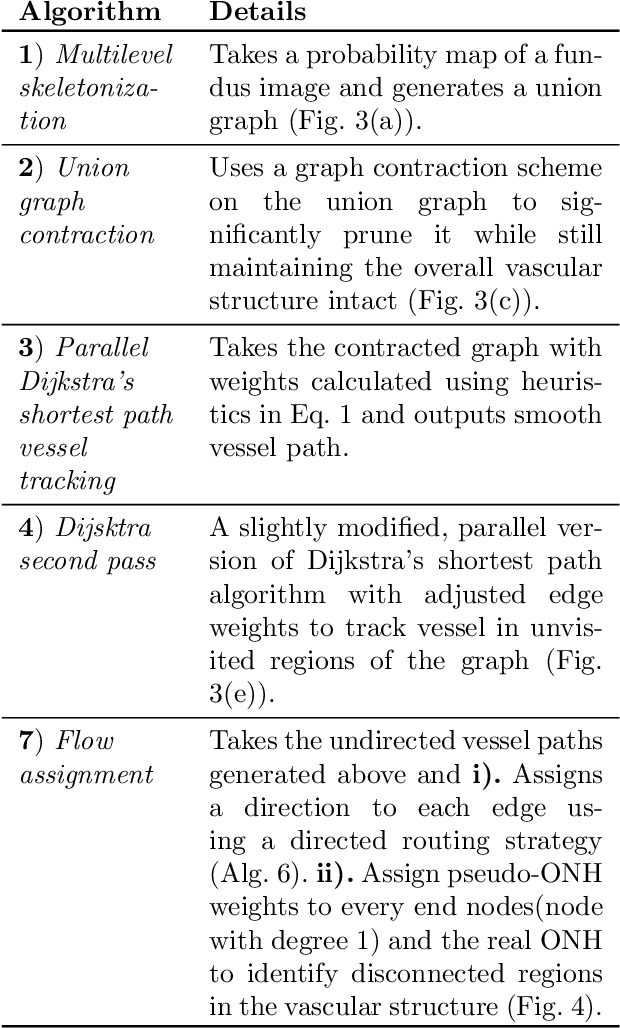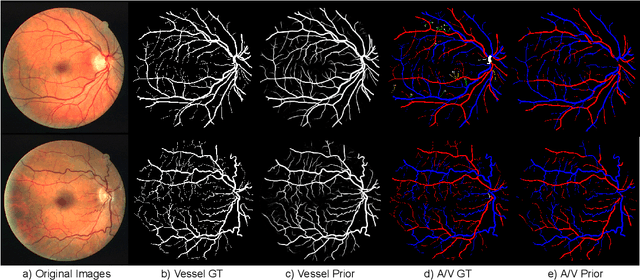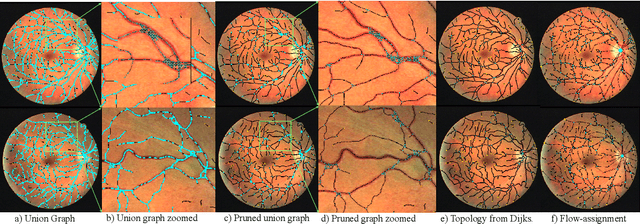Fully Automated Tree Topology Estimation and Artery-Vein Classification
Paper and Code
Feb 04, 2022



We present a fully automatic technique for extracting the retinal vascular topology, i.e., how the different vessels are connected to each other, given a single color fundus image. Determining this connectivity is very challenging because vessels cross each other in a 2D image, obscuring their true paths. We validated the usefulness of our extraction method by using it to achieve state-of-the-art results in retinal artery-vein classification. Our proposed approach works as follows. We first segment the retinal vessels using our previously developed state-of-the-art segmentation method. Then, we estimate an initial graph from the extracted vessels and assign the most likely blood flow to each edge. We then use a handful of high-level operations (HLOs) to fix errors in the graph. These HLOs include detaching neighboring nodes, shifting the endpoints of an edge, and reversing the estimated blood flow direction for a branch. We use a novel cost function to find the optimal set of HLO operations for a given graph. Finally, we show that our extracted vascular structure is correct by propagating artery/vein labels along the branches. As our experiments show, our topology-based artery-vein labeling achieved state-of-the-art results on multiple datasets. We also performed several ablation studies to verify the importance of the different components of our proposed method.
 Add to Chrome
Add to Chrome Add to Firefox
Add to Firefox Add to Edge
Add to Edge